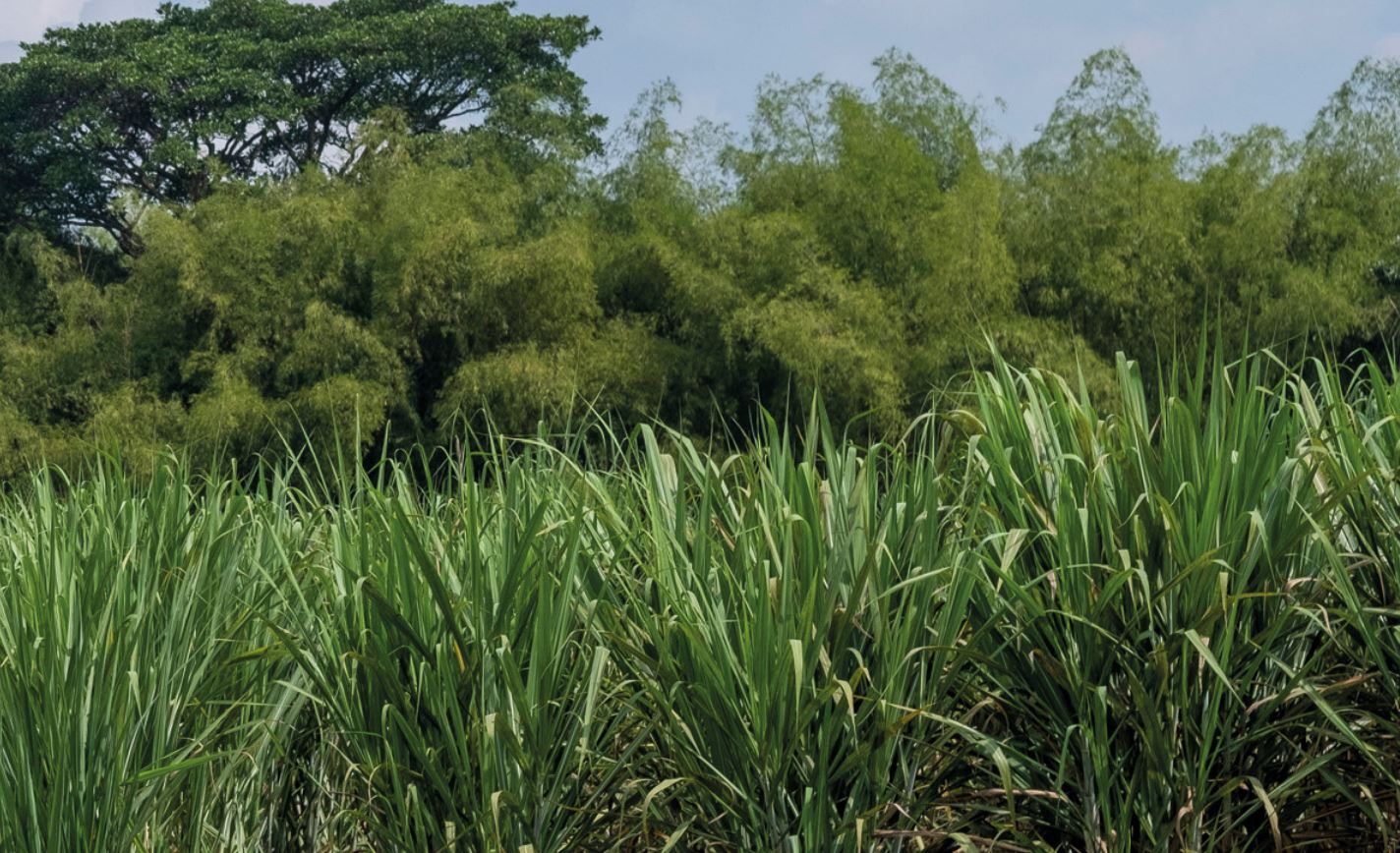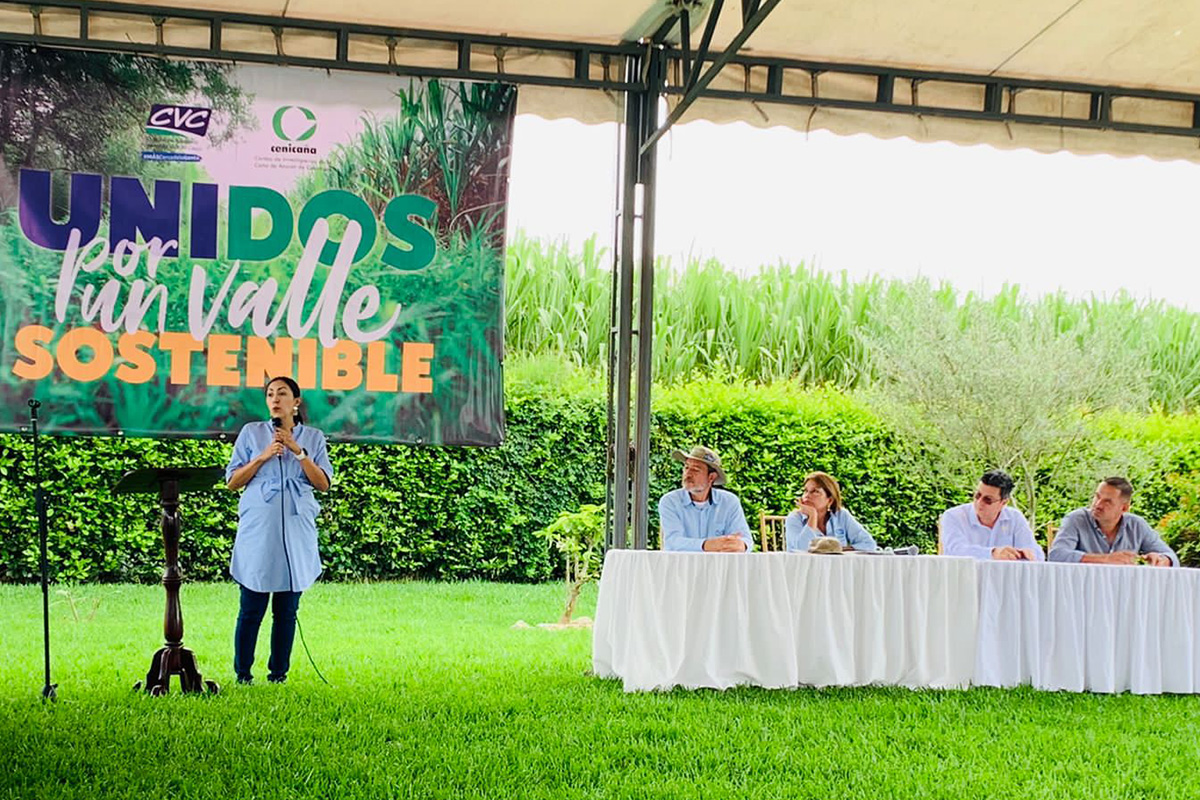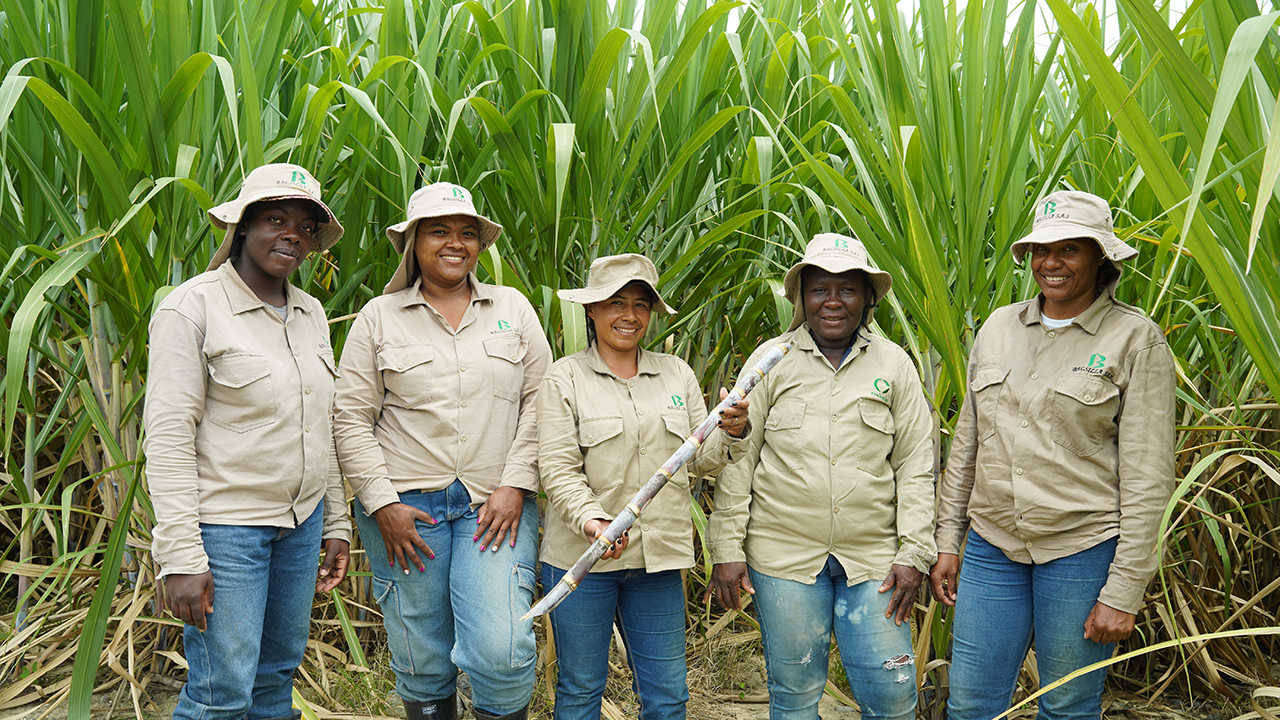San Antonio de los Caballeros, Florida, November 25, 2022. “Colombia has great challenges in terms of sustainability; Only in the reduction of greenhouse gases do we have commitments and goals in which we must all do our bit. That is why we need to join efforts, ally ourselves with entities like the CVC so that our contributions last over time, to change perceptions and broaden the impact of our actions”.
With this message, the General Director of the Colombian Sugar Cane Research Center, Freddy Fernando Garcés, invited to continue working hand in hand with agro-industries and environmental authorities to advance in the implementation of more sustainable practices for the management of sugarcane cultivation in the region.
Their statements were given during the delivery of the results of agreements 068 of 2021 and 004 of 2022 between the Regional Autonomous Corporation of Valle del Cauca, CVC, and Cenicaña, in order to advance the implementation of Productive Reconversion actions in management and Soil Conservation in the RAMSAR polygon, associated with the Sonso Lagoon.
The agreements cover the municipalities of Guacarí, Buga, Ginebra, San Pedro, Yotoco and Riofrío; and the San Pedro, Sabaletas, Guadalajara, Guabas, Sonso, Piedras, Yotoco and Mediacanoa basins, belonging to the RAMSAR polygon.
A total of 33 sugarcane production units located in this area of Valle del Cauca were linked to the agreements and within the framework of these, 9.3 hectares were planted with 7200 plants (55 species) and 84 hectares with green manures, implements were purchased for community use for tasks such as running aground 0x0 and planting grains, among others. 18 matric potential stations were also installed to accurately determine the water status of the soil, beneficial insects were released to carry out biological control of the main pest of sugarcane, and organic fertilizers, compost, and seeds for planting green manures were delivered.
Oscar de Jesús Peláez, supervisor of the agreement, pointed out that of the 5500 hectares of the RAMSAR polygon, 1200 hectares are for sustainable use. “We started with 33 intervened farms, for a total of 56 hectares, but the real area is much larger because a producer who embraces these technologies, who is convinced of the process, can easily expand their scope to more hectares of farms. These results are just the beginning of a very long road”, he pointed out.
The actions and technologies implemented, he explained, are mainly aimed at strengthening diversity, the implementation of sustainable coverage on the ground, rational use of water resources and fertilization alternatives.
The experiences
Ana María Saavedra is one of the sugarcane producers participating in the agreement and who, with the permanent support of biologists, extension agents and researchers from Cenicaña and CVC officials, implemented tasks and technologies to strengthen diversity and manage soil and water resources. on his farm, located in Guacarí. According to her, benefiting from this alliance between Cenicaña and the CVC not only allows her to comply with the Government, but also to make an environmental and social contribution to the territories and communities neighboring her property.
“As part of the agreement we received 704 trees of 20 species, 150 of them we planted in a lot that had always been destined for cattle. We turned planting these trees into a great day for the family with the farm team, which was very valuable because we were more committed to caring for them and enjoying the countryside”, recalls the grower.
Jair Piedrahíta, for his part, is the administrator of the Chambery farm, also located in Guacarí, who, with the support of the property's owners and the help of the farm operators, set out to implement different tasks and technologies, such as using the stranding to conserve soil moisture. Today he saves at least three "wets" in the raising of the crop. “Innovating is not easy, that is why it is essential to be patient, listen to the employees for their experience in the field and be accompanied in the process”, he pointed out.
Finally, the Director of the CVC, Marco Antonio Suárez, highlighted the importance of acting as environmental authorities "without going against the productive sector." “In this way, the productive sector of the region will take ownership of this change and work hand in hand with both the authorities and the community. That is the best way to move our department forward, ”he pointed out.















